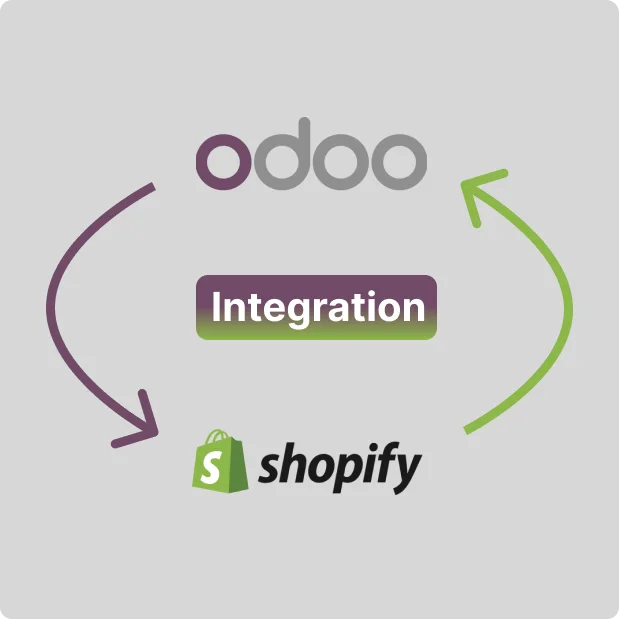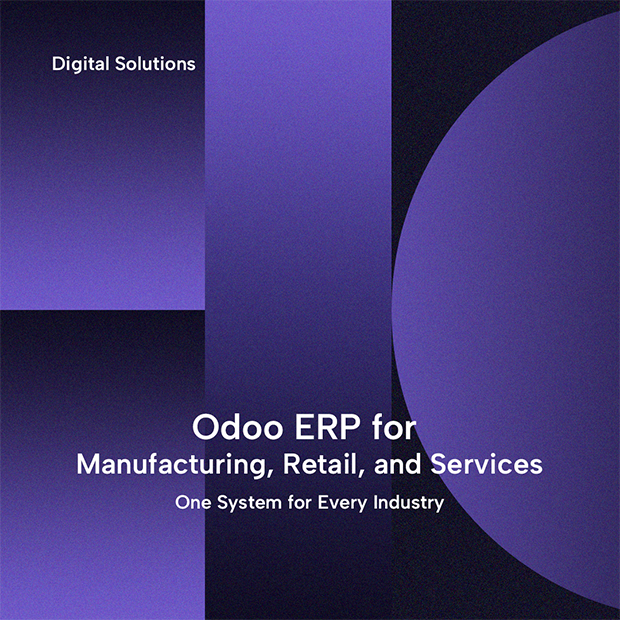Odoo ERP Integration with Shopify:
In today’s fast-paced business environment, flexibility and adaptability are paramount for success. As an Odoo ERP Silver Partner, we at EUSOL understand the unique challenges faced by various industries. This blog explores how Odoo’s open-source architecture allows for seamless implementation across multiple sectors, making it a preferred choice for businesses looking to optimize their operations.
The Essence of Odoo’s Flexibility:
Odoo is renowned for its modular design, which enables businesses to select and customize applications that align with their specific operational needs. This flexibility is one of Odoo’s core strengths, allowing organizations of all sizes—from startups to large enterprises—to tailor the software to their unique workflows.
Key Features Contributing to Flexibility:
- Modular Architecture: Odoo comprises over 40,000 applications available in its app store. Businesses can choose only the modules they require, ensuring a lean implementation that can scale as needs evolve. For example, a small retail business may start with modules like sales, CRM, and inventory, but later scale to include more complex modules like manufacturing, accounting, and HR as the business grows.
- Open Source Advantage: Being open-source means that companies can modify the software to fit their requirements without incurring hefty licensing fees associated with proprietary systems. This feature is particularly beneficial for small and medium-sized enterprises looking to control costs while still accessing powerful ERP functionalities. Additionally, the Odoo community continuously contributes to the evolution of the software, creating a robust support ecosystem.
- Customization Capabilities: With tools like Odoo Studio, users can create custom applications, automate tasks, and design tailored reports without needing extensive programming knowledge. This empowers businesses to adapt the system as they grow or as market demands change. For instance, a business can customize its inventory management system to handle specific workflows, ensuring efficiency and accuracy in real-time.
- Integration Potential: Odoo seamlessly integrates with various third-party applications, enhancing its functionality across different business processes. This capability allows companies to create a unified ecosystem that supports all aspects of their operations—from sales and inventory management to customer relationship management (CRM). Integration with platforms like Shopify, for example, allows businesses to sync products, orders, and customer data across systems for a unified experienc
Industry-Specific Applications:
Odoo’s flexibility shines through its ability to cater to diverse industry verticals:
- Manufacturing
In the manufacturing sector, Odoo provides modules for managing production processes, inventory tracking, and quality control. Businesses can automate workflows to reduce lead times and enhance resource utilization. Furthermore, manufacturers can integrate Odoo with IoT devices to monitor equipment performance and predict maintenance needs, further increasing operational efficiency.
- Healthcare
Healthcare providers benefit from specialized modules that streamline patient management, inventory procurement for medical supplies, and compliance with regulatory standards. Odoo’s customization options allow healthcare facilities to tailor the system according to their specific operational needs. The integration with Shopify can also be valuable for medical suppliers to manage eCommerce alongside their physical store operations.
- Retail
For retail businesses, Odoo offers solutions that manage point-of-sale transactions, inventory levels, and customer engagement strategies. The flexibility of Odoo allows retailers to adapt quickly to changing consumer preferences and market trends. With seamless integration with Shopify, retail businesses can also offer an online shopping experience, track sales data, and streamline fulfillment from their eCommerce platform.
- Education
Educational institutions can utilize Odoo for managing student information systems, human resources, and financial tracking. This comprehensive approach reduces administrative burdens and enhances the focus on student learning. Integrating Odoo with online platforms and eLearning tools can create a cohesive system for both students and educators.
- Hospitality
In the hospitality industry, Odoo supports booking management, CRM functionalities for personalized guest experiences, and inventory management for supplies—all crucial for maintaining high service standards. By integrating Odoo with Shopify, hospitality businesses can also offer gift cards, online bookings, and other services through their digital platforms
Conclusion:
Odoo’s open-source framework provides unparalleled flexibility that accommodates the diverse needs of various industries. Its modular design allows businesses to implement only what they need while offering extensive customization options for future growth. As an Odoo ERP Silver Partner, EUSOL is committed to helping organizations leverage this powerful tool to enhance efficiency and drive success.
By choosing Odoo, businesses not only gain access to a robust ERP solution but also empower themselves with the flexibility needed to thrive in today’s competitive landscape. This flexibility, combined with the power of integration with platforms like Shopify, creates an ecosystem where businesses can streamline operations, improve customer satisfaction, and increase revenue.
For more insights into how EUSOL can help your business implement Odoo effectively across different sectors, feel free to reach out!
















